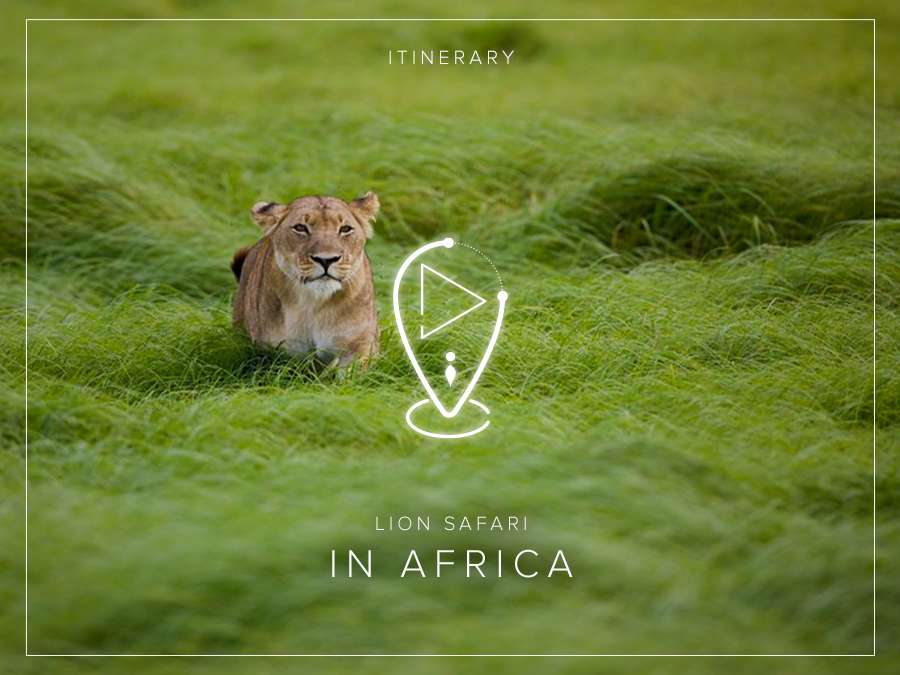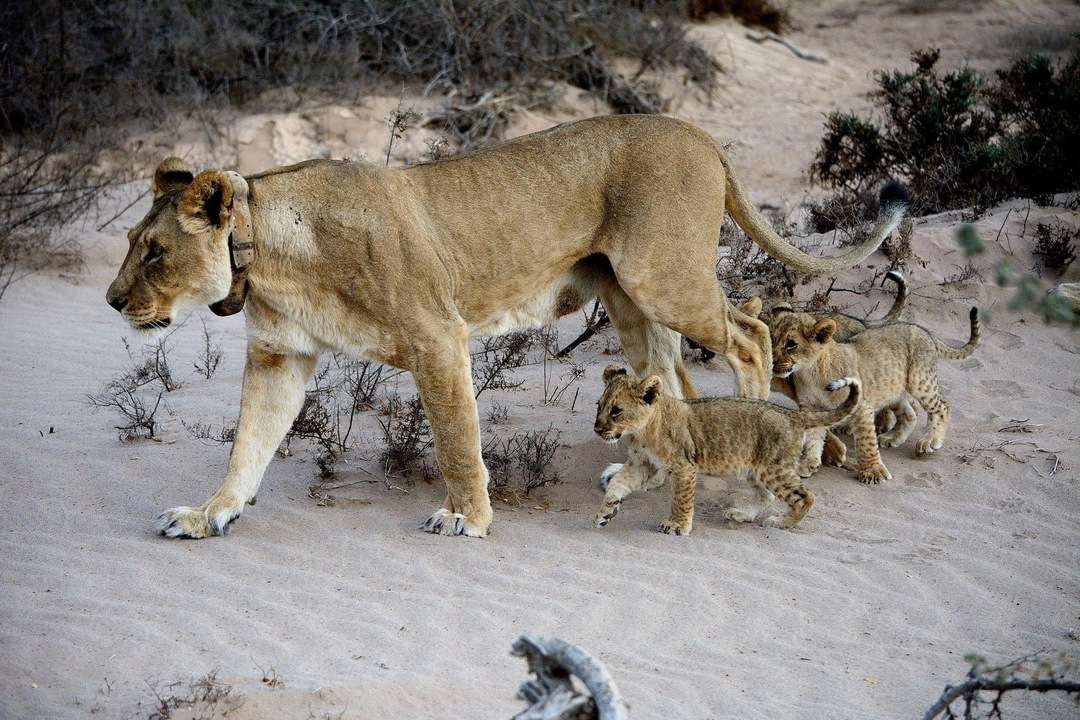The lion (Panthera leo) is Africa’s largest predator, and the animal everybody hopes to see on safari. Popularised through its misnomer “The King of the Jungle”, this apex predator plays a key role in maintaining functional ecosystems and thriving biodiversity across much of Africa’s savannah biome. Loss of apex predators such as lions leads to imbalance and ultimately degradation of the system, and is just one of the reasons that it is so important to focus on lion conservation.
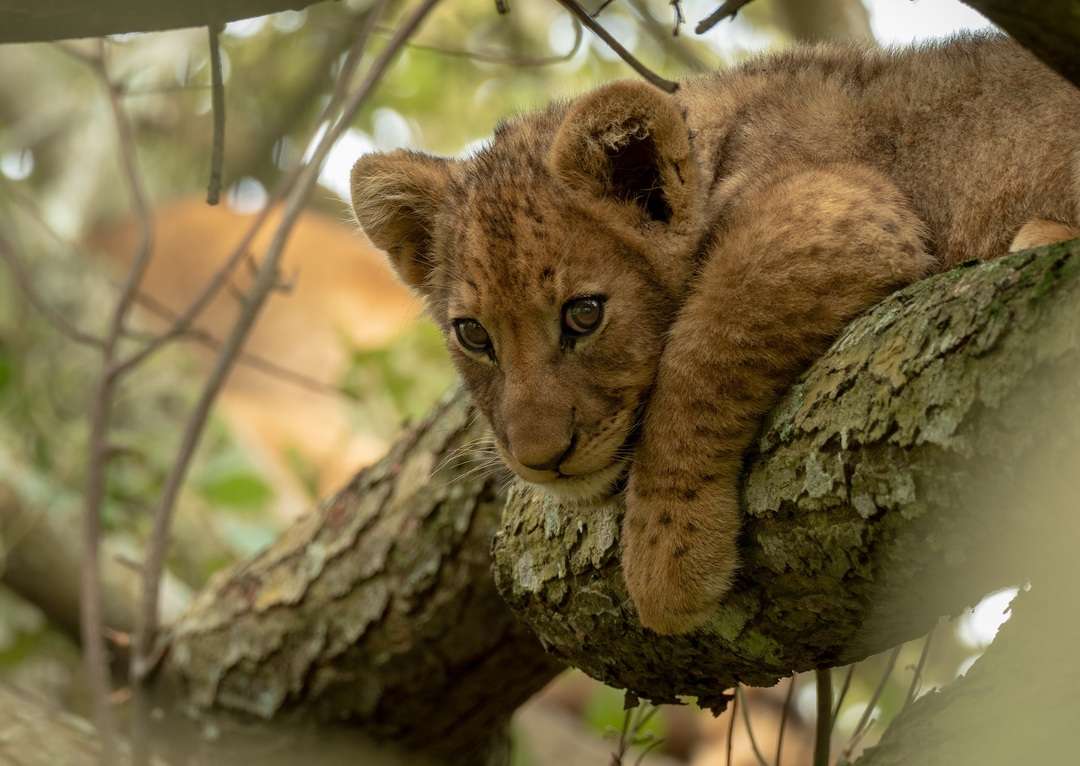
African lion populations have been decreasing for decades, and this iconic species is listed as Vulnerable on the IUCN Red list, with only 20 000 remaining today on the continent. But thanks to organisations such as the Lion Recovery Fund (LRF) and Desert Lion Conservation Project (just two of the conservation programmes Wilderness. supports), effective programmes and innovative approaches to lion conservation issues are on the rise.
Learn why lions are in trouble, and what we can do to help them recover, in this short film narrated by Leonardo DiCaprio.
Where to See African Lions on Safari?
When planning your life-changing journey it is important to know what you are looking for. And if lions are on that list, look no further. Here we have put together a sample itinerary of the best Wilderness camps to see these feline wonders, and learn more about some of their conservation efforts, to ensure the African lion is around for many more generations to come.
Magashi – Lion Conservation Success Story
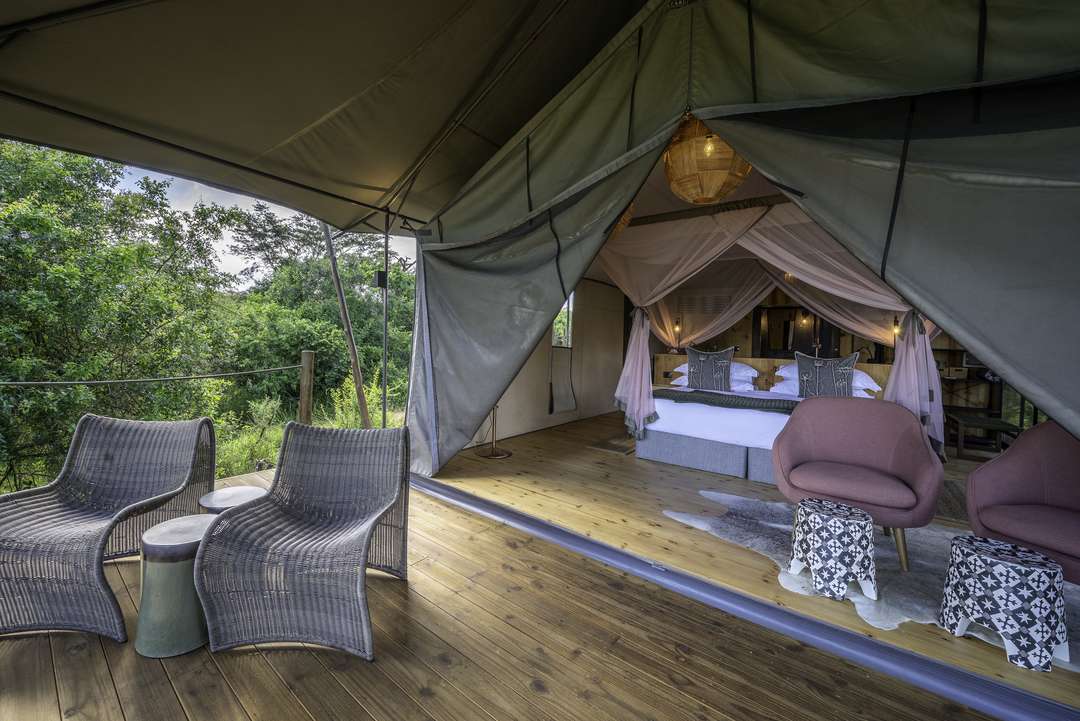
If you thought Rwanda was all about gorillas … think again! Situated in the north-east of this wonderful country, Magashi Camp is set in the heart of the diverse environment of Akagera National Park. Overlooking the scenic Lake Rwanyakazinga, the camp’s architecture and interiors pay homage to traditional Rwandan culture.
Arguably one of East Africa’s most picturesque parks, Akagera has healthy populations of the continent’s most charismatic savannah species.
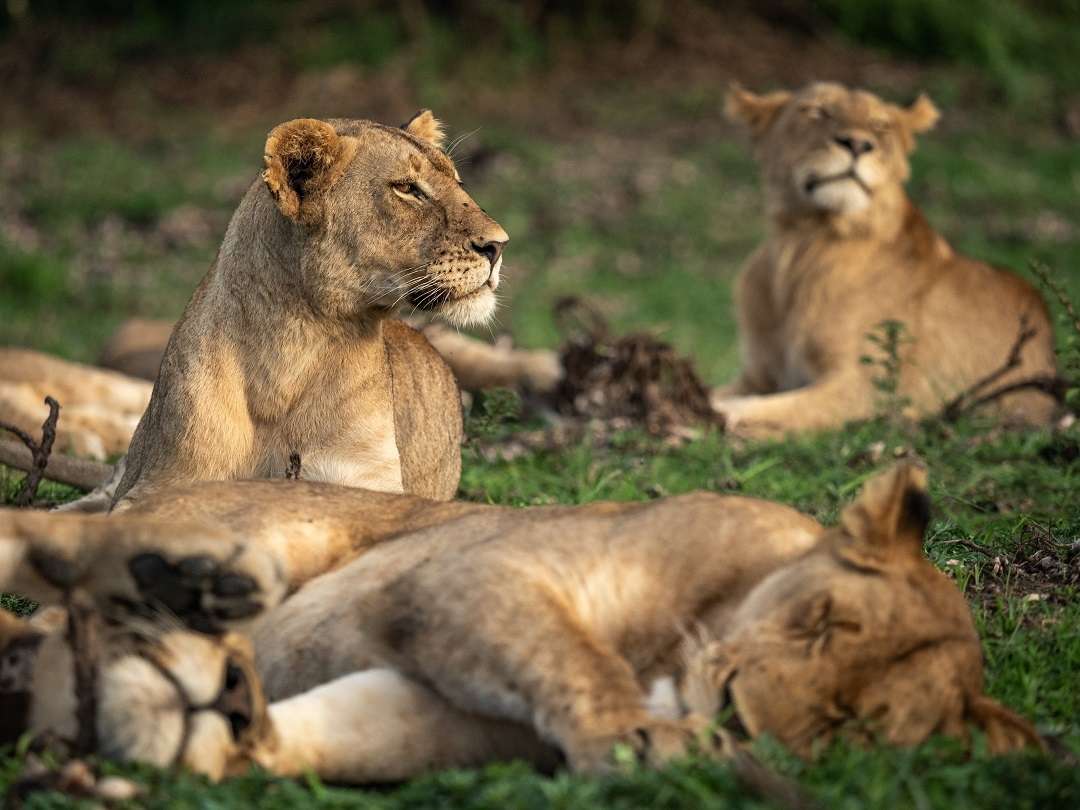
Akagera National Park is a real success story for lion conservation. African Parks assumed management of the park in 2010 in partnership with the Rwandan Development Board. What ensued has been an inspiring tale of rehabilitation, with large-scale wildlife reintroductions, the almost total eradication of poaching, and the development of a vibrant tourism industry.
In 2015, park management took the bold step of reintroducing lions to Akagera. Once persecuted to extinction in Rwanda, the founder population has increased rapidly to 35 individuals, certainly contributing significantly to the ecosystem, whilst providing another major attraction for our guests at Magashi.
Shumba – Plains of Plenty of Lions
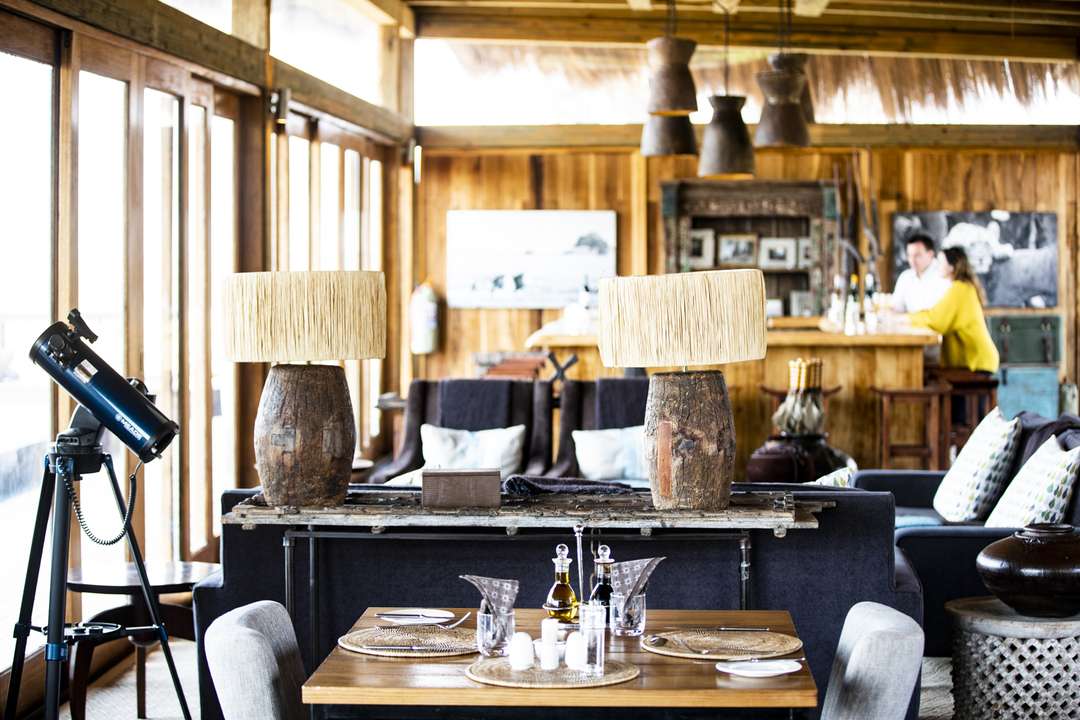
Shumba Camp in Zambia’s Kafue National Park sits in the centre of the Busanga Plains, a natural wildlife haven known for its dynamic lion population. Guests of this magnificent camp are often treated to amazing sightings of “flying lions” – as they leap over the many small channels and streams in their territory – and regular daytime hunts of the vast herds of resident puku and red lechwe.
Over 5.5 million acres in extent, Kafue National Park forms the core of a 16 million acre complex of protected areas, a landscape almost 7.5 times larger than Yellowstone National Park. This giant wilderness is as beautiful as it is diverse, with vast miombo woodlands and seasonally inundated plains fed by three magnificent rivers. Kafue is reported to be the park in Africa with the highest antelope diversity, and is a key stronghold for lions. However, wildlife in the landscape is severely threatened by bushmeat poaching, a major threat to lions, as it means they get caught in snares set for other species, and also suffer the effects of loss of their prey base. Critical anti-poaching and research work funded by LRF in Kafue aims to mitigate this threat, thereby protecting lions, their habitats and the prey species on which they rely.
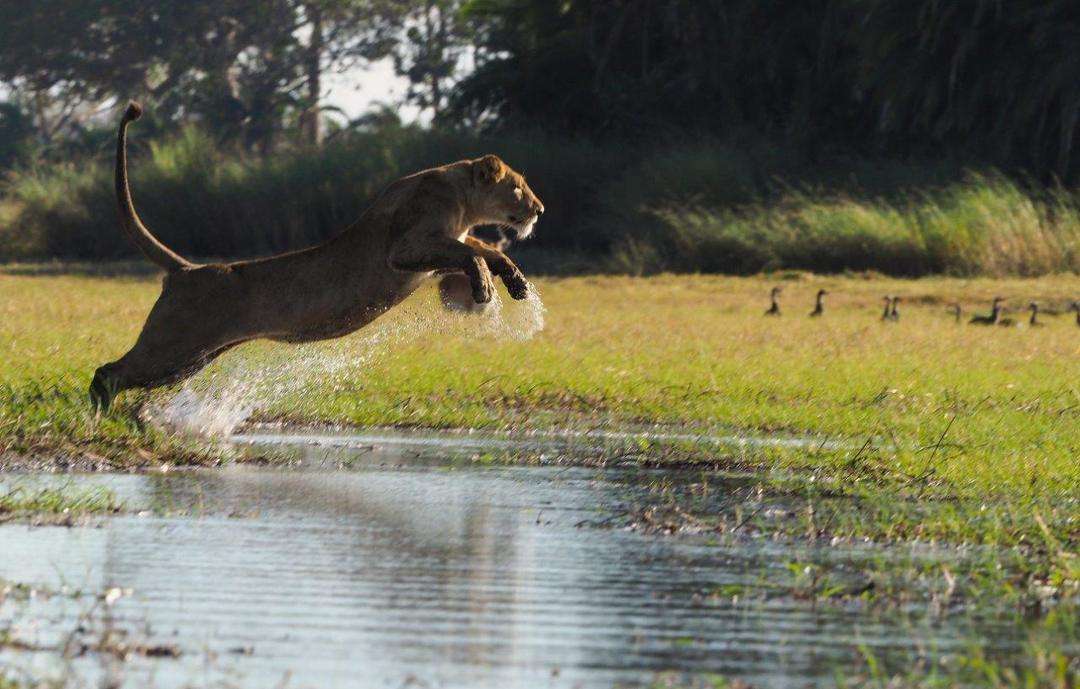
Panthera’s Kafue Law Enforcement and Wildlife Support Programme (KLAWS), supported by the LRF, has been doing amazing work in the last year too, monitoring the key Kafue lion prides as part of their anti-poaching patrol efforts.
Vumbura – Co-existing and Collaborating
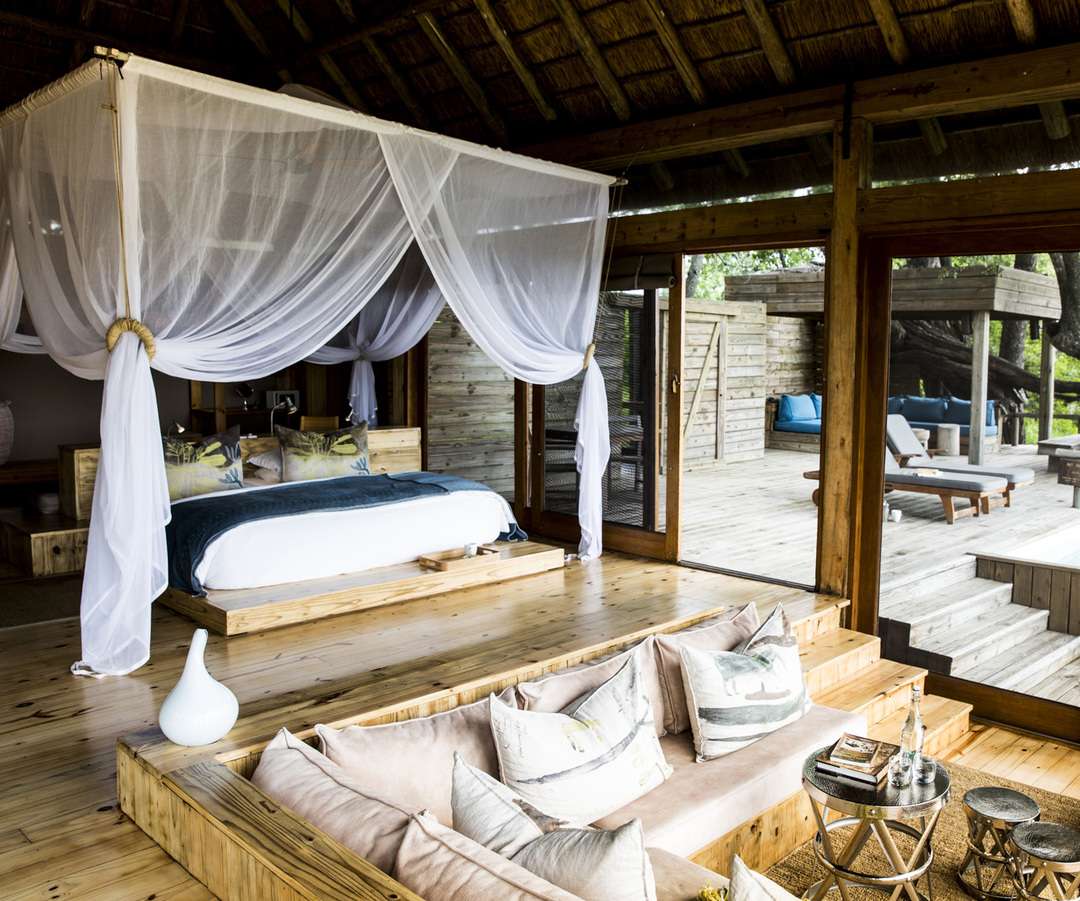
Luxurious Vumbura Plains lies in an area that is a mix of water and dry land. The wildlife is diverse, so that both land and water activities on vehicles, mekoro and boats deliver an all-round African safari experience. The 14 tents, raised off the ground, are unique and contemporary in design, making extensive use of light, wood and space. Each includes a sunken lounge, sala, and plunge pool while the two family units have private decks linking the two separate tents.
The LRF funds the CLAWS (Communities Living Amongst Wildlife Sustainably) Project in the northern Okavango Delta of Botswana. CLAWS works with local farmers to improve management of livestock to protect rangelands and also to reduce human-lion conflict in innovative ways. These efforts are designed to promote co-existence between people and lions, and reduce the high levels of retaliatory killings that occurred prior to the onset of the project. New research on the project suggests that these efforts are reducing conflict levels and improving tolerance for lions amongst local herders. Also part of their Pride in our Prides Project, livestock are protected in a large communal herd in the Eretsha Village area. A community committee has created rotational grazing plans (to reverse impact of overgrazing) and certified herders monitor livestock health and protect herd against predators (thereby reducing lion conflict). An alert system has also been created, which notifies villagers when lions approach livestock areas.
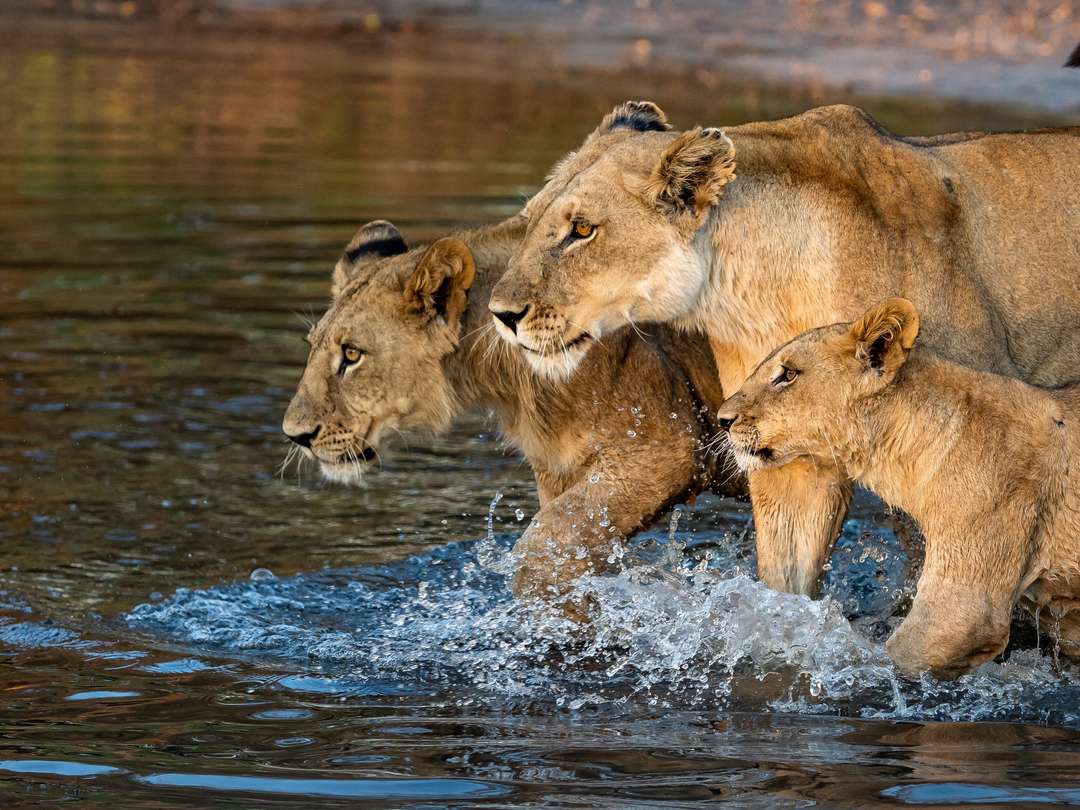
The LRF and the Wilderness Wildlife Trust also provides ongoing support for human-lion conflict mitigation in Botswana (the Boteti and Chobe regions) through the Community Guardianship and Livestock Protection Programme under the Wildlife and Communities Action Trust (WildCAT), an affiliate of the University of Oxford’s Wildlife Conservation Research Unit (WildCRU).
Hoanib – Desert Lion Research
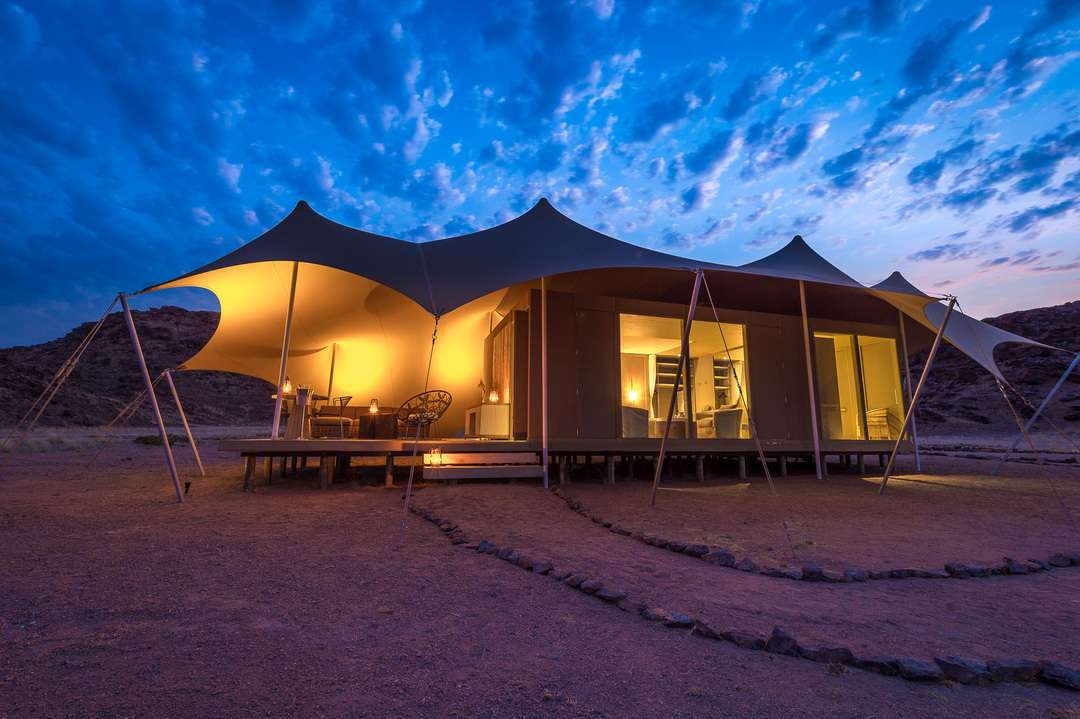
The name “Skeleton Coast” conjures up romantic images of desolate beauty, and the proudly remote Hoanib Skeleton Coast Camp in the Kaokoveld does not disappoint. The dry bed of the Hoanib River supports a thin green ribbon of vegetation and the wild beaches of the Atlantic coast are within reach, with their noisy seal colonies and eerily quiet shipwreck remnants. Eight large en-suite tents (including one family unit) and the main area provide shady viewpoints, while nature drives into the surrounding area reveal a wealth of desert-adapted wildlife. Desert-adapted lion and brown hyaena may also be glimpsed in this vast but far from lifeless landscape. Or simply spend time in the research centre, one of the bases for Dr Philip Stander and his Desert Lion Conservation Project.
The value of the unique “desert” lions to tourism in the Kunene Region in particular, and to the Namibian tourism industry in general, is of great significance. However, for the long-term conservation of desert lions to succeed, there is a need to monitor their population ecology and to address human-lion conflicts.
This long-term study therefore aims to learn more about this unique lion population and assist local communities with conflicts whenever and wherever they occur. This knowledge will help in the successful conservation of the species to the benefit of both the tourism industry and the local communities, which generally bear the costs of living with these predators. Both lions and people will thus benefit from the project.
Linkwasha – Hwange Lions and Scorpion Anti-Poaching Unit
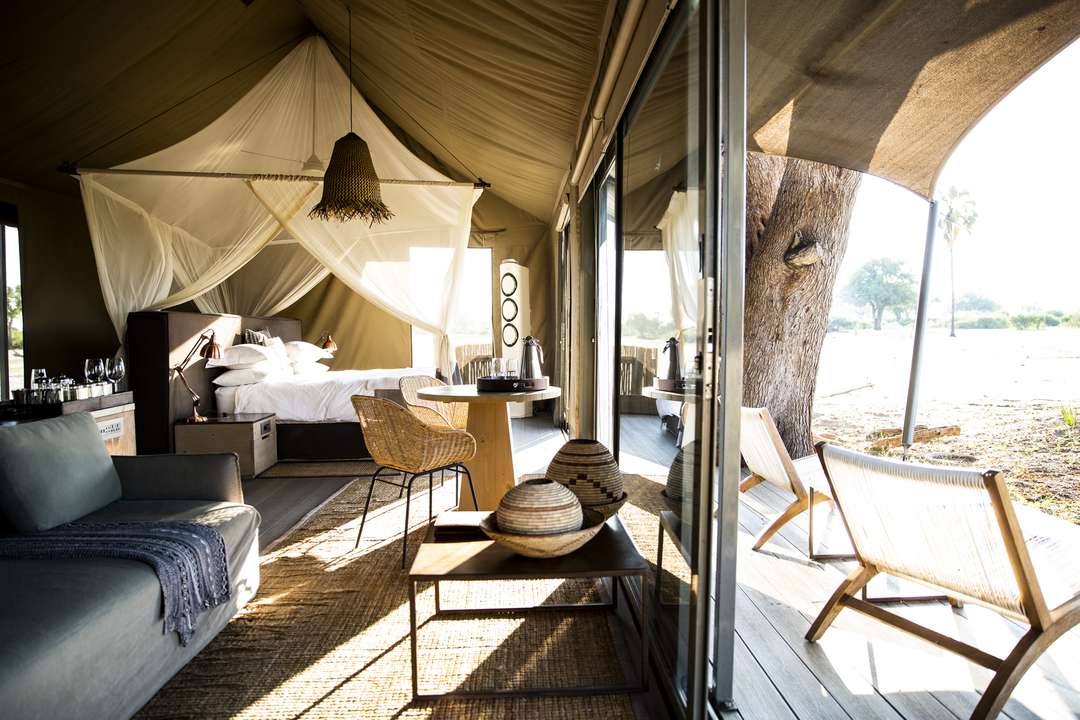
Linkwasha is situated in a private concession in the best location in Hwange. It is found near the famed Ngamo Plains, where wildlife gathers in numbers during summer – to add to the year-round excellent viewing from the camp itself; Linkwasha overlooks a pan that is a magnet for game seeking to quench its thirst. The camp is an eclectic mix of contemporary interiors and Ndebele culture, its nine luxurious tents (eight twins and one family unit) overlooking a scenic plain. The main area includes various multi-level decks, amongst them a cosy library, fireplace, and shaded salas surrounding an inviting pool. The nearby romantic Star Bed looks onto a productive waterhole.
Hwange National Park has a high mortality rate of lion from accidental snaring, as evidence has shown that many wire snares are set for medium and large animals, including elephant and giraffe. The Scorpion Anti-Poaching Unit (SAPU), run by Wilderness Safaris in partnership with Zimbabwe’s Parks and Wildlife Management Authority (ZimParks) and Panthera, provides manpower and resources to help reduce levels of poaching within the boundary areas of Hwange National Park.
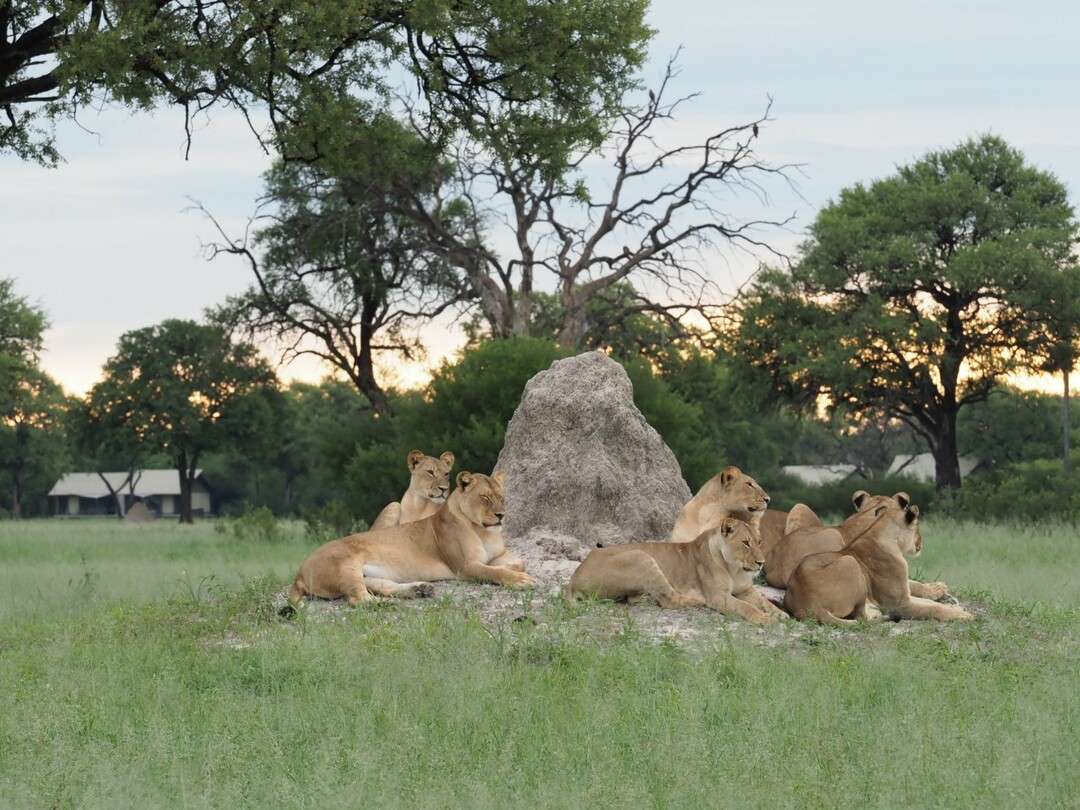
A Community Guardianship and Livestock Protection Programme also aids lion conservation in Zimbabwe. The project employs local Community Guardians around Hwange National Park; they advise and train people on improved livestock husbandry techniques, assist with wildlife surveys and monitor conflict incidents. This project is a collaborative partnership between two conservation organisations: WildCRU’s Trans-Kalahari Predator Programme (TKPP) and the Victoria Falls Wildlife Trust (VFWT).
Despite COVID-19 bringing global travel to a near standstill, Wilderness has reaffirmed its dedication to conserving and restoring Africa’s wilderness by continuing to support vital conservation projects in Hwange National Park, Zimbabwe. This includes ongoing donations from Wilderness Sustainability Fund to support the operating costs of the Scorpion Anti-Poaching Unit (SAPU). Read more here and learn how you can help by becoming a Conservation Hero.
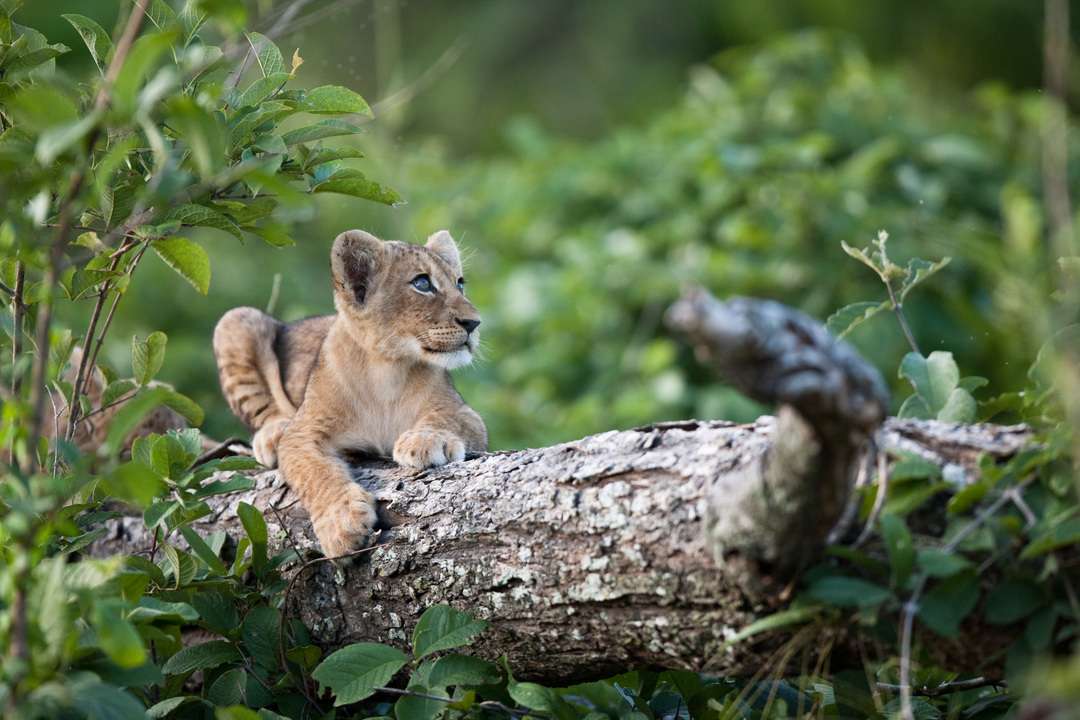

Let’s plan your next journey
Ready?
When we say we’re there every step of the way, we mean it, literally. From planning the perfect circuit, to private inter-camp transfers on Wilderness Air, and easing you through Customs. We’re with you on the ground, at your side, 24-7, from start to finish. Ready to take the road less travelled? Contact our Travel Designers to plan an unforgettable journey.
